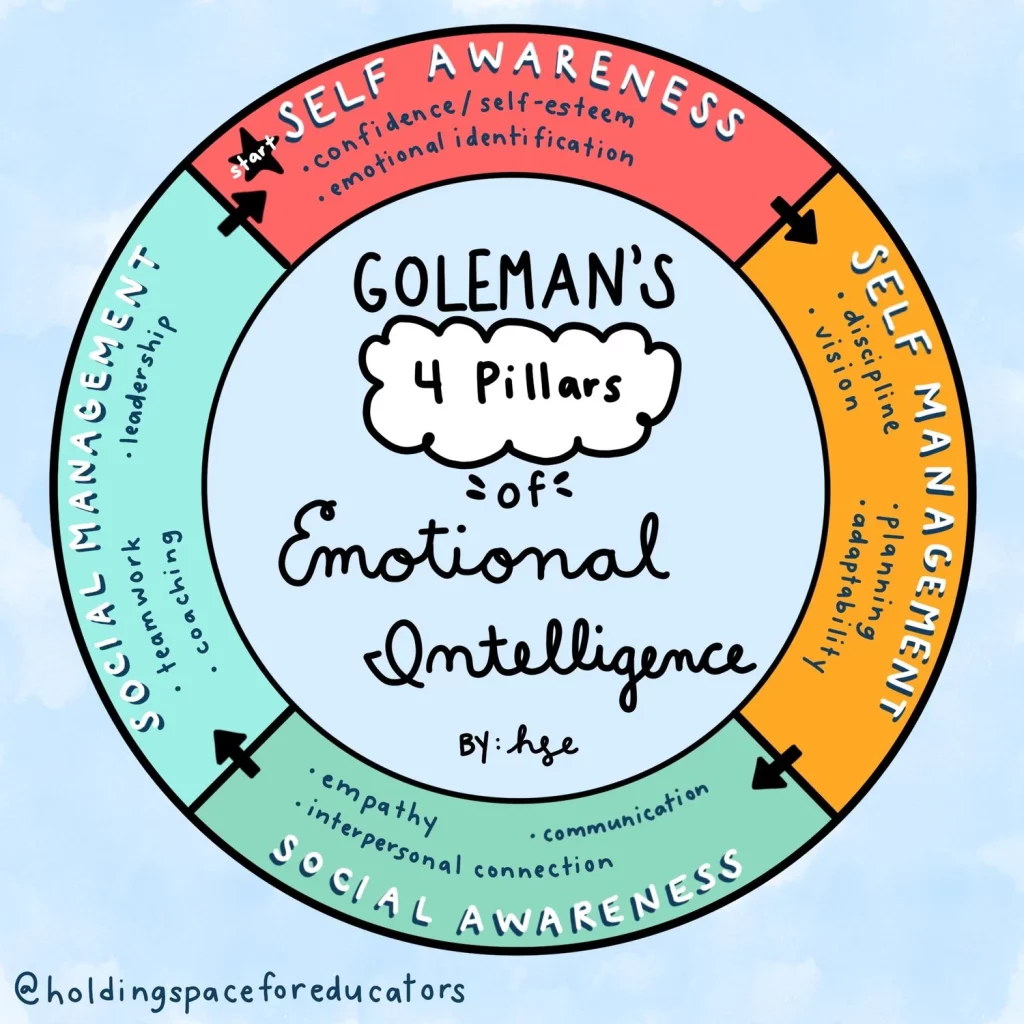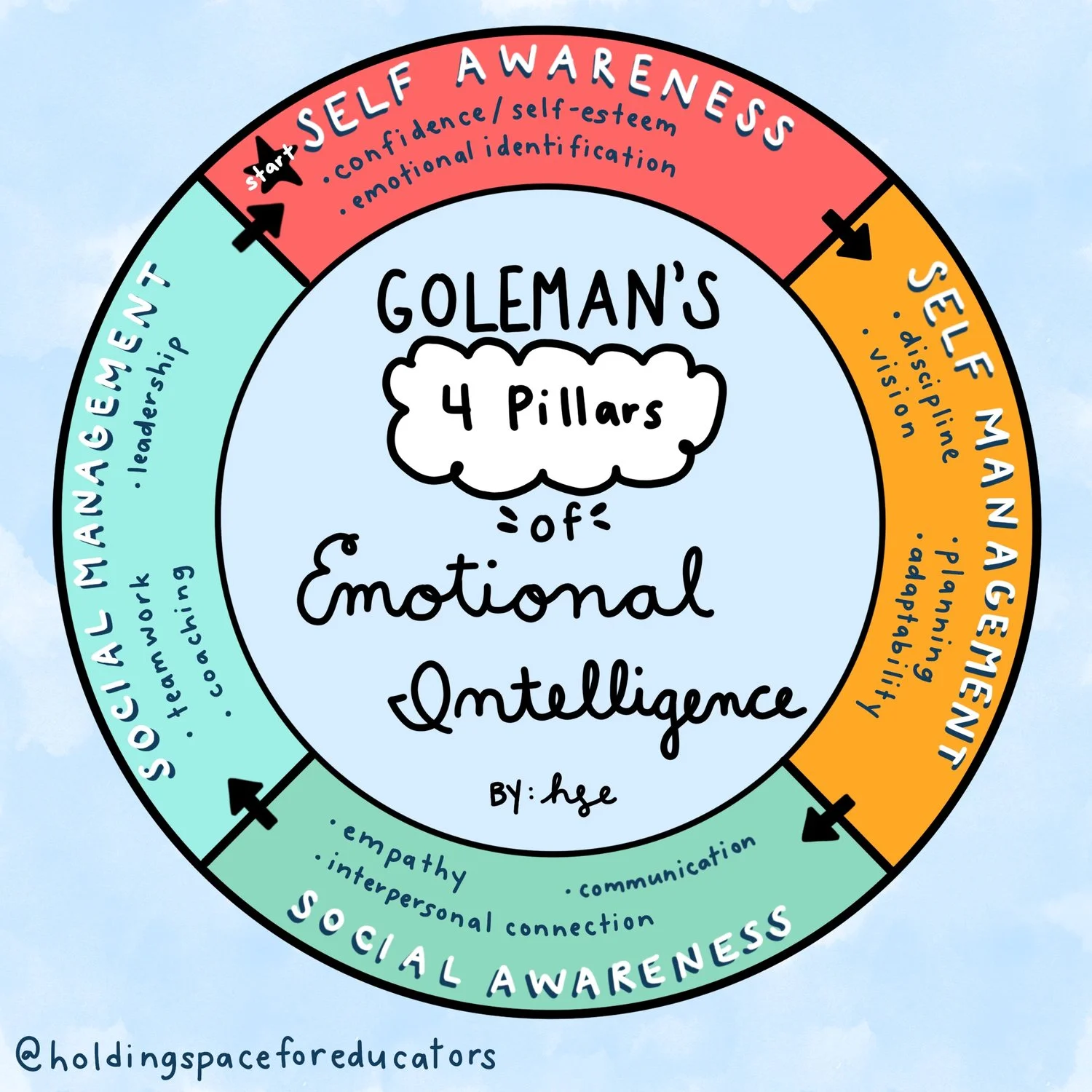Understanding Emotional Intelligence in Leadership
The Intersection of Emotion and Management
Emotion and management/ leadership are two words that do not tend to come into the same sentence. In most workplaces, people are likely to try to leave their emotions at the door, put their ‘game face’ on and just get on with the task at hand.
Why Emotional Intelligence Matters
Whilst I must firstly qualify that being emotionally intelligent isn’t about being overly emotional and displaying emotions inappropriately, I think the ‘leave your emotional self’ at the door is a limiting approach to people-management and leadership. Research published in ‘Frontiers in Psychology’ (2019) mentioned that more than 85% of senior leaders owe their outstanding performance to emotional intelligence (EQ) rather than intelligence alone (IQ).
Traits of Emotionally Intelligent Leaders
I’d invite you now to bring to mind any leader whom you admire. It may be somebody you had the pleasure to work with at some point in your career, or it could be somebody famous whose leadership skills you admire.
What is the one trait that I would wager that all of these great leaders have in common? It is an ability to stay calm under pressure. This is a key skill of the emotionally intelligent leader. An emotionally intelligent leader understands the importance of balancing emotions and logic to guide their team effectively.When I work with various groups and individuals, exploring the topic of emotional intelligence, this is the one key skill that people come back to time and time again as being a key attribute of an inspirational leader.
The Impact of Emotional Intelligence on Employee Retention
Why is this a key trait of inspirational leaders? Well, let’s flip the question around and ask; who wants to work for an emotionally frazzled leader or manager? Anybody?
In fact, A poll conducted by Gallup in the U.S. found that leaving a bad manager was the number one reason why workers quit, with 75% of those who left voluntarily doing so because of their “boss” and not the job itself. However, this does not mean of course, that people don’t leave jobs for other reasons, such as better opportunities, personal growth, or work-life balance.
Daniel Goleman’s Model of Emotional Intelligence
Daniel Goleman, seen as the forefather of the corporate emotional intelligence movement, wrote a book called ‘Emotional Intelligence’ in 1995.
Goleman defined emotional intelligence (EI) as “the capacity for recognizing our own feelings and those of others, for motivating ourselves, and for managing emotions well in ourselves and in our relationships”. His model of EI includes five essential elements: self-awareness, self-regulation, motivation, empathy, and social skills. This definition emphasizes the importance of emotional intelligence in personal and professional success, as well as its impact on relationships and overall well-being.

Understanding Goleman’s 4 Pillars: The foundation for becoming an emotionally intelligent leader. Image: Holding Space for Educators
Developing Emotional Intelligence
His theory also points out that an initial need or desire for change is a requirement for growth in this area. To reach this point, a personal has usually faced a dilemma where their ‘go to’ approach for dealing with the day-to-day challenges of life, is simply not working anymore.
His theory suggests that those with developed levels of emotional intelligence will not only know what their tiggers are, but that they will also have the skills to re-regulate their emotions to allow for appropriate action at the appropriate time and in the appropriate setting. The good news he suggests, is that these skills can be worked on, and even perfected over time.
Getting Started with Emotional Intelligence
You might now wonder; how can I start to become more emotionally intelligent today? I’d suggest that you could begin, very simply, by embracing the first part of Goleman’s definition. Start by noticing how you are feeling throughout the day. Notice the highs, the lows and the in between, and then become curious as to how your feelings impact your mood and your behaviour. This alone would be an excellent starting point. Remember, even 1% more self-awareness today than you had yesterday is progress!
If you would like to enquire about coaching or leadership training for you or your team, please get in touch with me directly at denise@obrienlearningsolutions.ie or book a clarity call.





